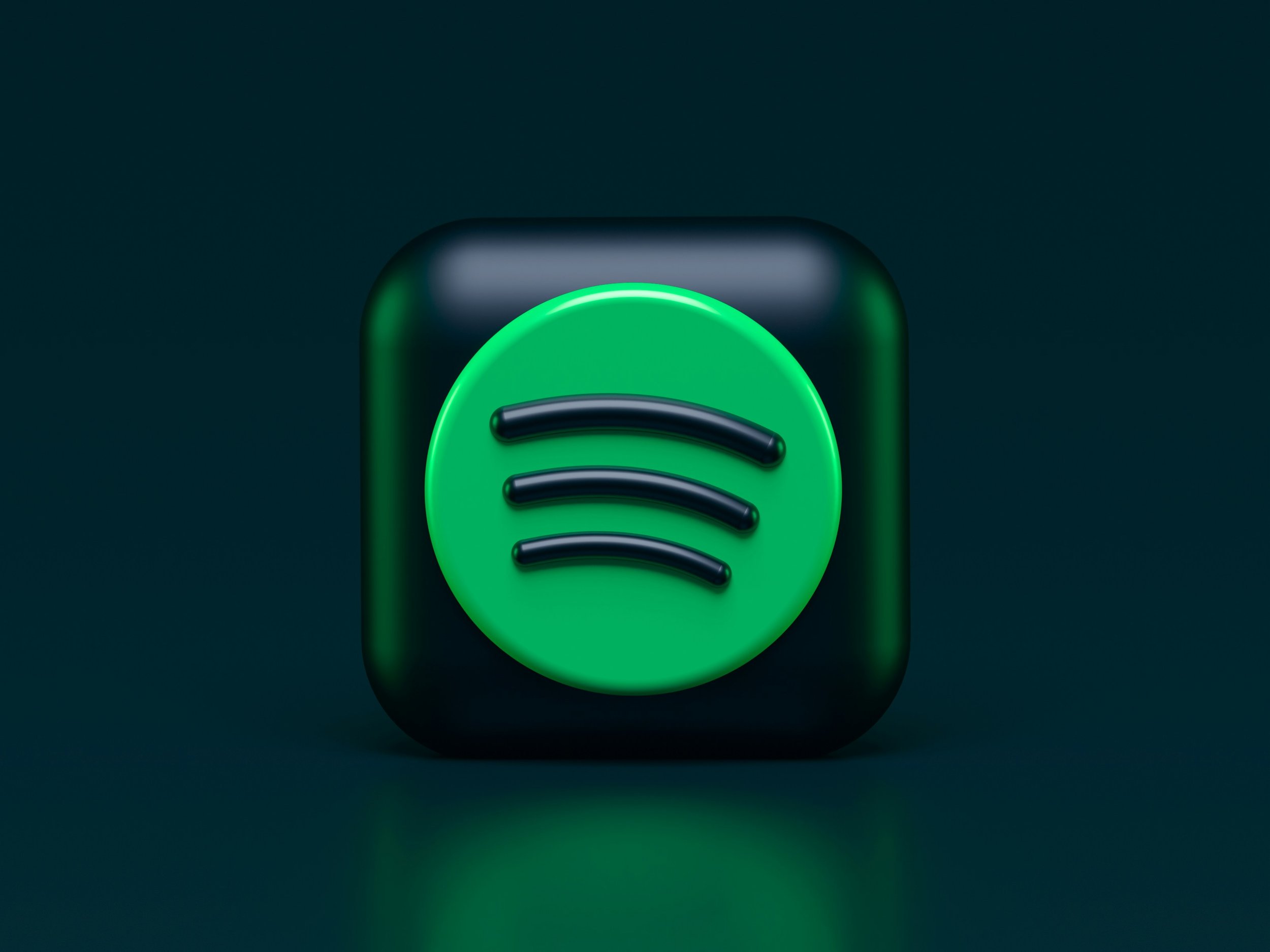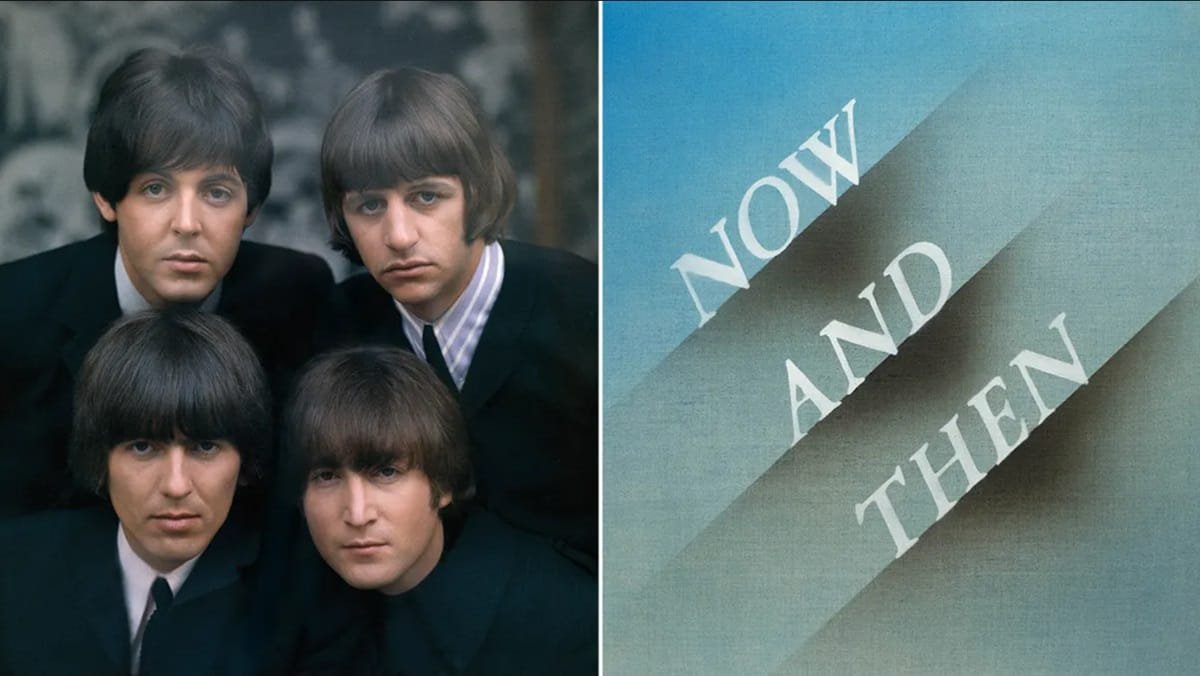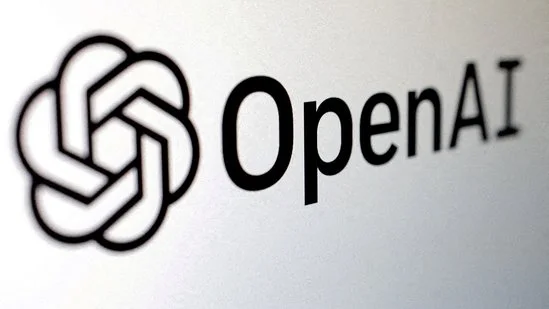In the middle of awards season, major announcements in the media and entertainment industry defined February’s news. While Spotify prepares to ramp up its product offerings, new AI-powered tech is winning Grammys and helping make magic happen on the big screen. All this takes place in the shadow of some major policy announcements regarding copyright and AI. Keep reading below to learn more.
Spotify Announces Music Pro
Spotify announced the intended rollout of its new Music Pro service later this year offering unique “superfan” perks at a higher price point. For an additional $5.99 per month, users may receive benefits, such as early access to live event tickets and merchandise, AI remix tools, and a high-fidelity audio experience. The list of potential perks is not finalized yet, but proposed offerings mimic approaches taken by Apple Music and other competitors in the music streaming space.
Source: Alexander Shatov, Unsplash
… And AI Audiobook Narration
Spotify also released plans this month to expand access to audiobook narration through its partnership with AI company ElevenLabs. After investing heavily in the podcast space, Spotify has steadily expanded into the audiobook market as well. Acquiring audiobook production company Findaway in 2022, Spotify currently accepts audiobooks utilizing digital voice narration created through Google Play Books, but has been strict in its policies on platforming AI-powered audiobook narration. ElevenLabs provides audio narration in 29 languages giving the author full control over the voice and intonation. This partnership expands the accepted roster of AI narration tools on the platform, giving authors more flexibility in creating such voice tracks. All audiobooks using AI narration are flagged in Spotify’s metadata and include a disclosure regarding the digital voice in their descriptions.
Source: ElevenLabs
Beatles Win Grammy WIth A little Help From AI
The Beatles won a Grammy Award for their song “Now and Then,” completing the track with the help of AI. By isolating vocals from a 1970s John Lennon demo, the band produced the first song to win a Grammy made using AI assistance. Having been unable to parse out Lennon’s vocals from the original demo’s background piano, the song was unable to be completed for the Beatles Anthology project in the 1990s. With the help of filmmaker Peter Jackson, the band was able to use machine learning software capable of isolating the vocals in order to build new, finished instrumentals around it to create the legendary band’s final song.
Source: Apple
DNEG Acquires Metaphysic
Visual Effects (VFX) production company DNEG revealed a deal this month for its content technology division Brahma to acquire prominent realistic-AI company Metaphysic. Metaphysic gained initial prominence with its deepfake abilities, and has been used to de-age screen actors like Tom Hanks and Robin Wright. Having been deployed in Furiosa: A Mad Max Saga and Alien: Romulus Metaphysic is positioned to dramatically bolster the AI capabilities of DNEG, a firm already responsible for the VFX in blockbusters as Dune and Stranger Things. The acquisition will give DNEG the film industry's “leading photorealistic video AI creator” for all intents and purposes, with its Brahma division valued at $1.43 billion after acquiring Metaphysic.
Source: DNEG © 2021 Legendary and Warner Bros. Entertainment Inc.
Acquisition Introduces AI to Media Asset Management
While AI often draws headlines for the spectacle it produces, increasing post-production demands require new solutions on the back-end. Media and entertainment asset management firm Perifery acquired AI company Pixitmedia this month, expanding the scale and offerings of its software which helps client’s store, discover, analyze, archive, and monetize their media assets. Perifery counts NBCUniversal and BBC Studioworks as major clients, with Pixitmedia servicing customers ranging from Fox Sports to the UK’s leading post-production supplier Molinare. This acquisition aims to help streamline media workflows in ever-expanding archives and optimize the libraries of major media production houses in the face of increased demands on post-production needs and continued monetization of archival media.
Source: Perifery
New U.S. copyright Guidelines for AI
The U.S. Copyright Office released new guidelines on AI, specifying art made fully by AI is not eligible for copyright protections. The report details new approaches taken by the Office regarding case-by-case assessments of protected works, highlighting that AI-assisted works may receive partial copyright protection depending on the level of control held by the artist. An example of partially protected work cited is in the instance of an artist using AI tools to adjust aspects of a fully original work made prior. The report also notes that, while fully AI-produced work is ineligible for protections, prompts are potentially eligible for copyright protection if sufficiently creative and original.
Source: United States Copyright Office
OpenAI Faces Pushback in Bollywood
OpenAI is receiving legal blowback from labels in India, its second biggest market. A coalition of Bollywood music labels have filed a lawsuit against OpenAI citing improper use of their products and recordings for training AI models. OpenAI claims to follow fair-use principles when training its models, but the music labels hope to join in a previous lawsuit filed by News Agency ANI alleging similar behaviors. This suit paired with complaints by news, media, and book publishing industries adds to a growing list of Indian firms attempting to defend against perceived abuses by OpenAI. This follows related international retaliation, with Germany’s GEMA suing OpenAI in 2024 for the improper use of works by composers, lyricists, and publicists in training ChatGPT.
Source: Reuters
-
“U.S. Copyright Office | U.S. Copyright Office,” accessed February 24, 2025, https://copyright.gov/
“Spotify to Launch ‘Music Pro’ Service with Superfan Perks like Early-Access Tickets and AI Remix Tool… for up to $5.99 More per Month (Report),” Music Business Worldwide, February 17, 2025, https://www.musicbusinessworldwide.com/spotify-to-launch-music-pro-service-with-superfan-perks-like-early-access-tickets-and-ai-remix-tool-for-up-to-5-99-more-per-month-report/
Caitlin Huston, “Spotify Looks to Expand AI-Narrated Audiobooks On Its Platform,” The Hollywood Reporter (blog), February 20, 2025, https://www.hollywoodreporter.com/business/business-news/spotify-ai-narrated-audiobooks-1236142068/
Tom Butts, “Perifery Acquires Pixitmedia to Expand AI-Powered Media Distribution,” TVTechnology, February 5, 2025, https://www.tvtechnology.com/news/perifery-acquires-pixitmedia-to-expand-ai-powered-media-distribution
Etan Vlessing, “‘Dune’ VFX House DNEG Makes Major Move Into AI, Unveils Deal to Buy Metaphysic,” The Hollywood Reporter (blog), February 18, 2025, https://www.hollywoodreporter.com/business/business-news/dune-vfx-house-dneg-metaphysic-1236139874/
Aditya Kalra and Aditya Kalra, “Bollywood Music Labels Seek to Challenge OpenAI in India Copyright Lawsuit,” Reuters, February 14, 2025, sec. Artificial Intelligence, https://www.reuters.com/technology/artificial-intelligence/bollywood-music-labels-seek-challenge-openai-india-copyright-lawsuit-2025-02-14/
“Beatles Win Grammy for ‘Now and Then’ with Help of Artificial Intelligence | FOX 29 Philadelphia,” accessed February 24, 2025, https://www.fox29.com/news/beatles-now-and-then-grammy?utm_source=flipboard&utm_content=BrettCrawfo2021%2Fmagazine%2FArts%20Management%20and%20Technology
Adam Schrader ShareShare This Article, “A.I. Art Generated With Text Prompts Cannot Be Copyrighted, U.S. Rules,” Artnet News, January 31, 2025, https://news.artnet.com/art-world/ai-art-us-copyright-office-2604297.








